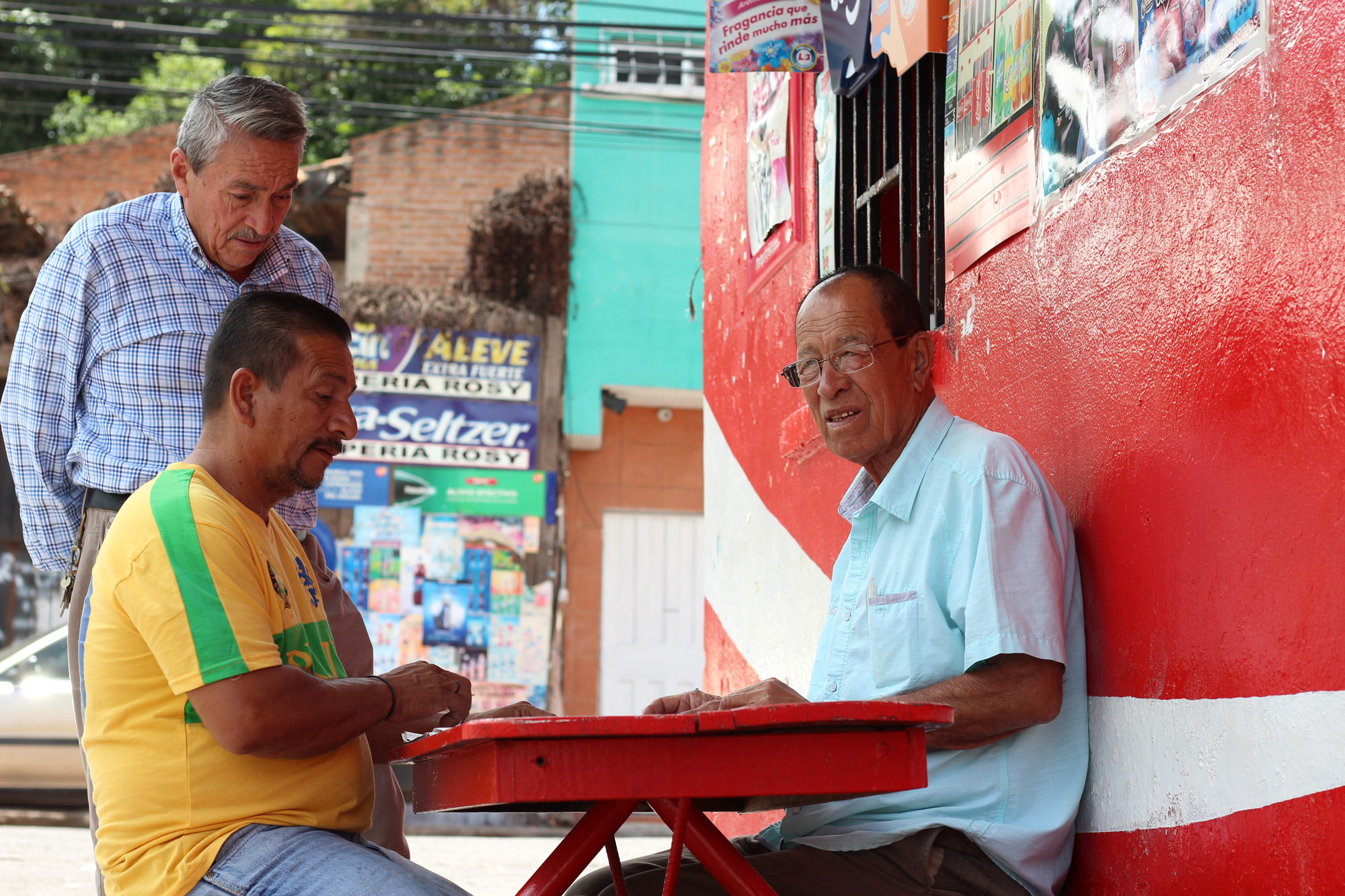Jose Arquijo Ponce peered down from behind his glasses at an article in La Tribuna. He was seated at a bright red table outside Pulpería Lila in Barrio Guadalupe — a popular hang-out spot for him and other men in the neighborhood.
Martin Alvarado, another local, also stared at the story.
The headline read: “Hallan ‘narcolaboratorio’ en sector de El Merendón.” A drug lab had been discovered in a part of El Merendón, a mountain range extending on the eastern border of Guatemala and Honduras. Police in gloves sorted through bags of marijuana in a photo.
“This tells you what it’s like to live here in Honduras — killings, assassinations, robberies… everything,” Arquijo said. “I share my opinions on what’s happening — that Honduras is a country that’s…”
“Violento (violent),” Alvarado interjected.
Arquijo nodded his head in agreement and repeated the word.
“Inseguridad (insecurity),” Alvarado offered.
Arquijo said change needs to happen in Honduras. He added that he feels safe in his neighborhood, but he can’t say the same for other parts of the Central American country.
At 81, Arquijo still worries about the future of his country.
“For my children and family,” he said. “We’re all worried.”
The International Women’s Media Foundation supported Amaris Castillo’s reporting from Honduras as part of the Adelante Latin America Reporting Initiative.
